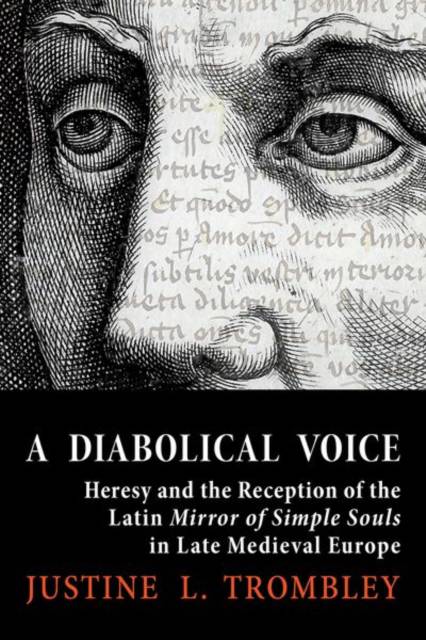
- Afhalen na 1 uur in een winkel met voorraad
- Gratis thuislevering in België vanaf € 30
- Ruim aanbod met 7 miljoen producten
- Afhalen na 1 uur in een winkel met voorraad
- Gratis thuislevering in België vanaf € 30
- Ruim aanbod met 7 miljoen producten
A Diabolical Voice
Heresy and the Reception of the Latin Mirror of Simple Souls in Late Medieval Europe
Justine L TrombleyOmschrijving
In A Diabolical Voice, Justine L. Trombley traces the afterlife of the Mirror of Simple Souls, which circulated anonymously for two centuries in four languages, though not without controversy or condemnation. Widely recognized as one of the most unusual and important mystical treatises of the late Middle Ages, the Mirror was condemned in Paris in 1310 as a heretical work, and its author, Marguerite Porete, was burned at the stake. Trombley identifies alongside the work's increasing positive reception a parallel trend of opposition and condemnation centered specifically around its Latin translation. She's discovered fourteenth- and fifteenth-century theologians, canon lawyers, inquisitors, and other churchmen who were entirely ignorant of the Mirror's author and its condemnation and saw in the work dangerous heresies that demanded refutation and condemnation of their own.
Using new evidence from the Mirror's largely overlooked Latin manuscript tradition, A Diabolical Voice charts the range of negative reactions to the Mirror, from confiscations and physical destruction to academic refutations and vicious denunciations of its supposedly fiendish doctrines. This parallel story of opposition shows how heresy remained an integral part of the Mirror's history well beyond the events of 1310, revealing how seriously churchmen took Marguerite Porete's ideas on their own terms, in contexts entirely removed from Marguerite's identity and her fate. Emphasizing the complexity of the Mirror of Simple Souls and its reception, Trombley makes clear that this influential book continues to yield new perspectives and understandings.
Specificaties
Betrokkenen
- Auteur(s):
- Uitgeverij:
Inhoud
- Aantal bladzijden:
- 234
- Taal:
- Engels
- Reeks:
Eigenschappen
- Productcode (EAN):
- 9781501769610
- Verschijningsdatum:
- 15/05/2023
- Uitvoering:
- Hardcover
- Formaat:
- Genaaid
- Afmetingen:
- 152 mm x 229 mm
- Gewicht:
- 498 g

Alleen bij Standaard Boekhandel
Beoordelingen
We publiceren alleen reviews die voldoen aan de voorwaarden voor reviews. Bekijk onze voorwaarden voor reviews.











